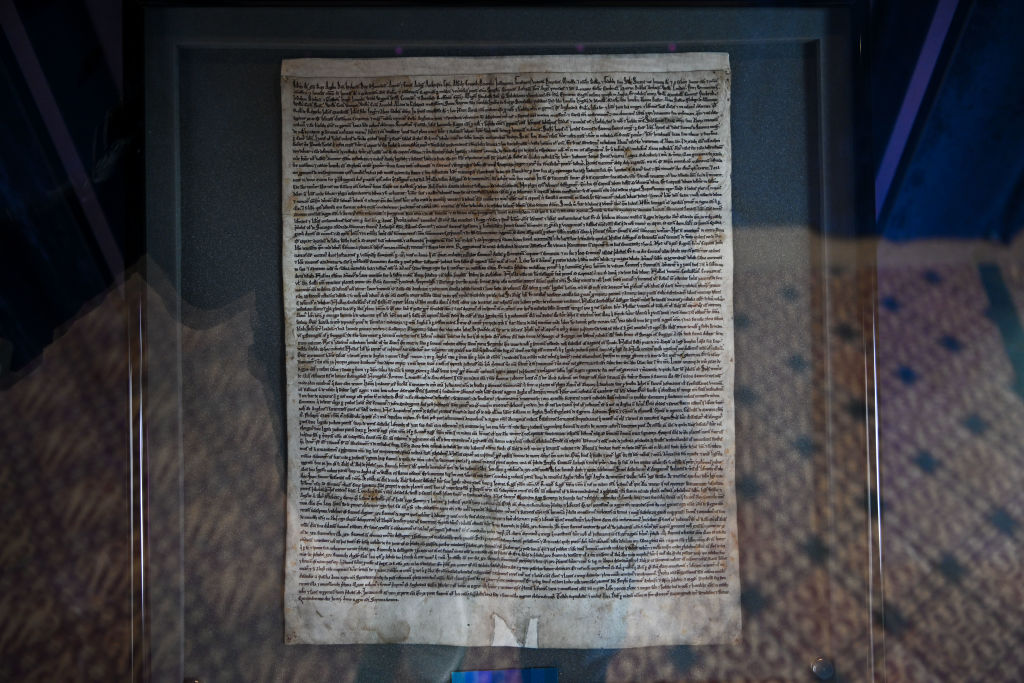15 June 1215: Magna Carta is sealed, curtailing the power of the king
On this day in 1215, King John submitted to the demands of England’s rebel barons and affixed his seal to the Magna Carta, assuring the rights of ‘free men’, and subjecting the king to the law of the land.

Get the latest financial news, insights and expert analysis from our award-winning MoneyWeek team, to help you understand what really matters when it comes to your finances.
You are now subscribed
Your newsletter sign-up was successful
Want to add more newsletters?

Twice daily
MoneyWeek
Get the latest financial news, insights and expert analysis from our award-winning MoneyWeek team, to help you understand what really matters when it comes to your finances.

Four times a week
Look After My Bills
Sign up to our free money-saving newsletter, filled with the latest news and expert advice to help you find the best tips and deals for managing your bills. Start saving today!
King John, as anyone familiar with the tales of Robin Hood can tell you, was a very bad egg.
His brother and predecessor, Richard, was keen on war, and spent most of his time abroad fighting. That was expensive. But at least he tended to win.
John, on the other hand, was a terrible military chief. But he still foughtmany wars in France. To pay for them, he taxed his nobles heavily he was king, after all. And what he said went. The barons just had to pay up.
MoneyWeek
Subscribe to MoneyWeek today and get your first six magazine issues absolutely FREE

Sign up to Money Morning
Don't miss the latest investment and personal finances news, market analysis, plus money-saving tips with our free twice-daily newsletter
Don't miss the latest investment and personal finances news, market analysis, plus money-saving tips with our free twice-daily newsletter
Add tothat his generally outrageous attitude to justice imposing hefty charges, taking hostages, and carrying out ruthless punishments plushis battles with the Church, and things eventually came to a head. You can't keep squeezing your lemons without expecting the pips to squeak.
The barons had had enough. They rebelled. Led by Robert fitz Walter, himself hardly a saint, they renounced their fealty to the king and captured London on 17 May 1215. And on 15 June, 1215, they met the king at Runnymede, by the Thames in Surrey, and demanded he sign a peace treaty Magna Carta.
John agreed, and for the first time the principle was established that the king was subject to the laws of the land. The agreement also guaranteed certain rights to nobles and free men'. (Your average serf, however the vast majority of England's population still had virtually no rights, and the principles contained in Magna Carta did not apply to them.)
The document was rewritten within ten years, and most of its original 63 clauses are now irrelevant. But some, including the right to a fair trial by one's peers, and the principle that taxes will not be levied without the "consent of the realm", have formed the foundations of many a constitution and important document, including the United States Bill of Rights and the Universal Declaration of Human Rights.

One of only four surviving Magna Carta documents from 1215 is seen on display at Salisbury Cathedral
Get the latest financial news, insights and expert analysis from our award-winning MoneyWeek team, to help you understand what really matters when it comes to your finances.

-
 Average UK house price reaches £300,000 for first time, Halifax says
Average UK house price reaches £300,000 for first time, Halifax saysWhile the average house price has topped £300k, regional disparities still remain, Halifax finds.
-
 Barings Emerging Europe trust bounces back from Russia woes
Barings Emerging Europe trust bounces back from Russia woesBarings Emerging Europe trust has added the Middle East and Africa to its mandate, delivering a strong recovery, says Max King
